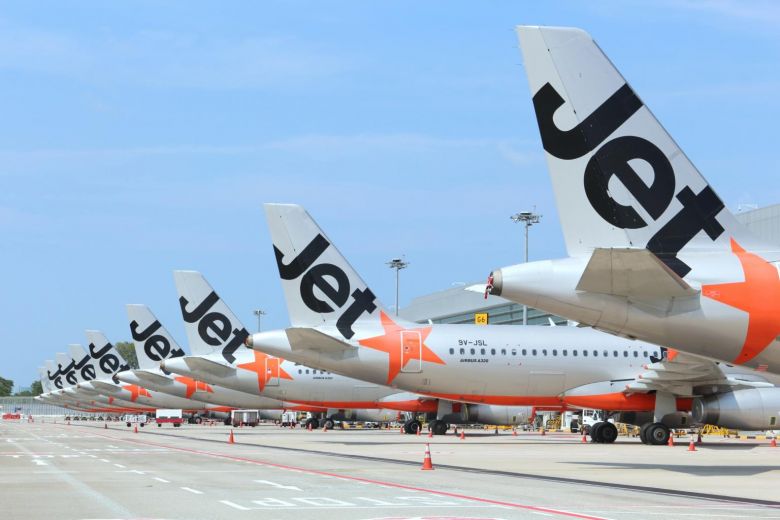
The cuts of up to 180 people across all parts of its business affect 26 per cent of Jetstar Asia’s workforce. PHOTO: JETSTAR ASIA via The Straits Times
SINGAPORE — Budget carrier Jetstar Asia is cutting a quarter of its Singapore-based workforce in July as part of “difficult but necessary decisions”.
The cuts of up to 180 people across all parts of its business affect 26 percent of Jetstar Asia’s workforce, even as most of the Singapore carrier’s remaining employees will stay furloughed until the end of the year.
The announcement comes on Thursday (June 25) as the Qantas Group, which owns 49 percent of Jetstar Asia, detailed its post-Covid-19 recovery plan. The three-year plan will involve measures including reducing the group’s pre-crisis workforce by at least 6,000 people across all job roles, from baggage handlers to corporate non-flying workers.
The early retirement of some planes and possible return of leased aircraft also means some 220 pilots will have to be let go.
Jetstar Asia chief executive officer Bara Pasupathi said the “single biggest shock to the aviation industry” caused by the pandemic has forced tough decisions so the airline can “remain agile while staying true to our low-cost DNA”.
Five Airbus A320 aircraft from Jetstar Asia’s fleet will be retired, reducing the budget carrier’s total fleet to 13 aircraft.
“There is no doubt that the travel market will look very different moving forward, so it is imperative that we change and adapt,” he said in a statement.
“Singapore and Changi Airport remain a strategic footprint for Jetstar Asia and the Qantas Group and we look forward to growing passenger numbers further through innovation and enhancing the customer experience in the future.”
He thanked the Singapore Government which “acted swiftly and decisively” to support the aviation sector through its budget measures, which have helped mitigate the situation.
The aviation industry and tourism sector are eligible for the highest tier of support provided by the Government’s Jobs Support Scheme announced in April, qualifying for 75 percent wage support throughout the nine months that the scheme is in effect.
Qantas Group said it still expects to break even for the financial year ending in September despite the significant reduction in revenue due to the coronavirus. It has needed to take “swift action to reduce its cash burn as travel demand evaporated”.